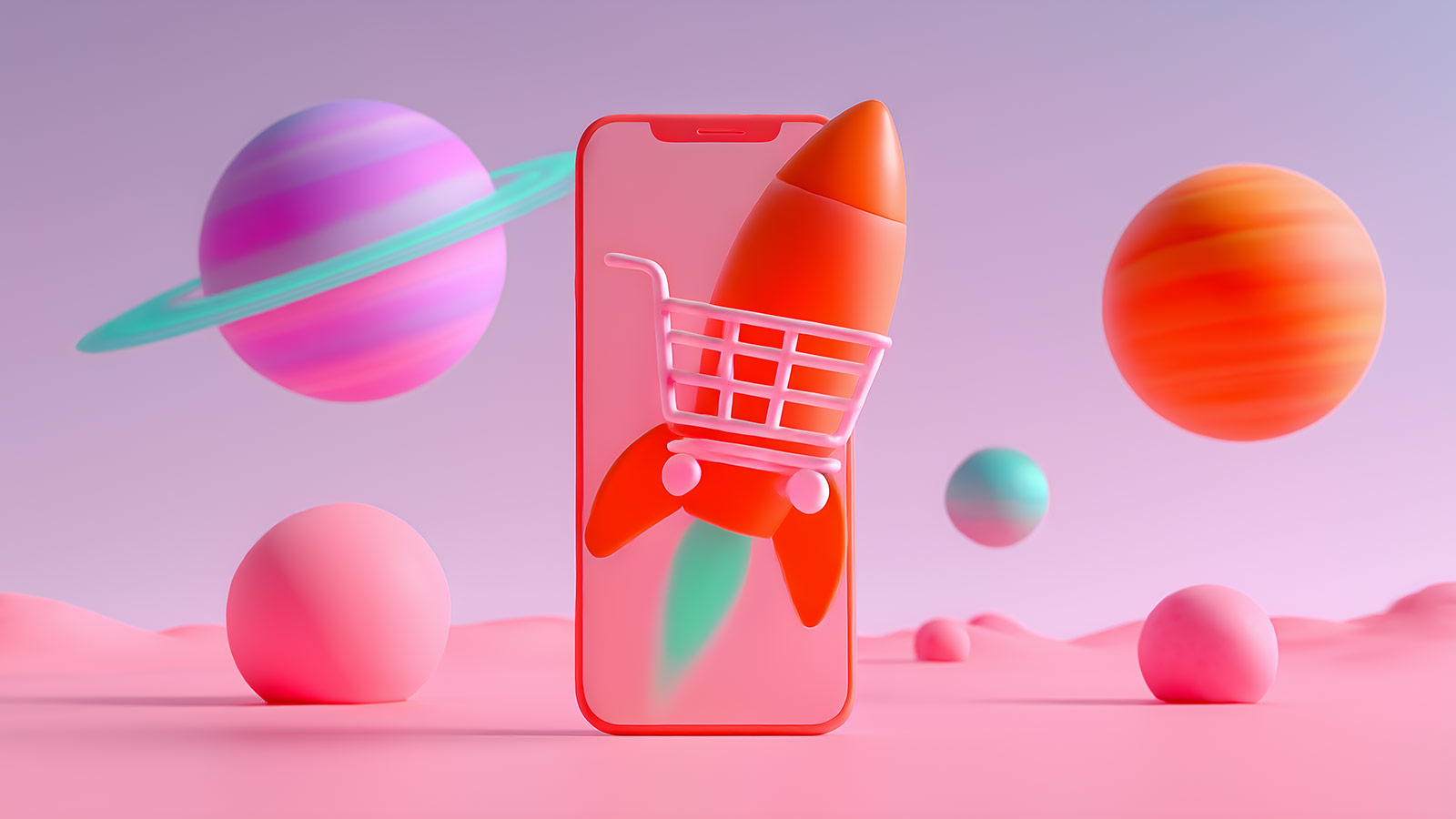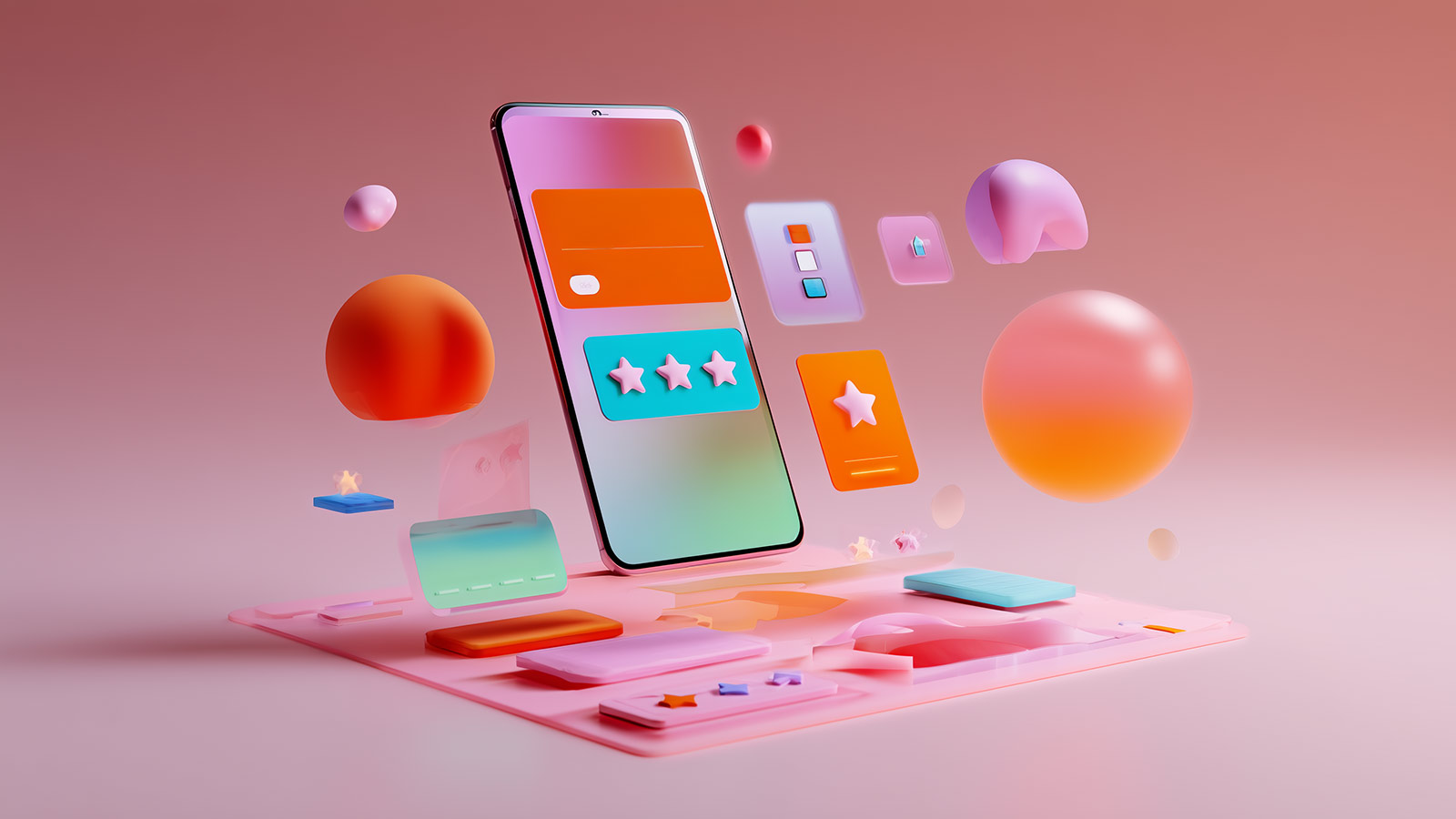How Shopping Apps Can Boost Retention: Strategies That Work in 2025


Introduction
Reading the Adjust Shopping App Report of 2025 we can clearly see that shopping ads have entered 2025 with a mixed outlook: users are downloading fewer new apps, but engaging more deeply with the ones they have. Global e-commerce app installs declined by about 14% in early 2025, even as sessions per app rose 2%. This means growth is no longer just about acquiring users at scale; it’s about keeping them active, satisfied and coming back for more. As AI, personalization and multi-channel journeys become standard in mobile commerce, thriving in this landscape requires precision, relevance and seamless experiences rather than basic acquisition tactics. In this blog post, we’ll unpack key trends and patterns from the latest Shopping Apps Report 2025 and explore how real-world context and on-device signals – the core of ContextSDK’s ContextPush and ContextDecision products – can help growth marketers, product leaders and user acquisition (UA) teams elevate their strategies. From AI-driven personalization to Black Friday engagement hacks, we’ll see how shopping apps can evolve using context-aware push notifications and decisioning to drive monetization and loyalty.
Shifting User Behavior & Engagement Trends
Fewer Installs, More Engagement:
While overall mobile commerce is surging (forecasted to reach $2.5 trillion in revenue by 2025, a 21.3% YoY increase), users are consolidating their attention on a handful of apps. The Adjust report notes that “fewer app downloads, but more active engagement” is the new norm.
Marketplace and aggregator apps are leading engagement metrics – logging the longest average session lengths (~10.7 minutes) and highest Day-1 retention (24.8%) in H1 2025. This underscores the importance of retention and user experience: if installs are harder to come by, keeping existing users engaged is paramount.
Regional Growth Opportunities:
The global picture isn’t uniform. E-commerce app installs jumped +18% in Latin America and +13% in APAC in the first half of 2025, with countries like Thailand (+180% installs) and Brazil (+48%) emerging as top growth markets. Meanwhile, some mature markets saw flat or declining install rates.
In these high-growth regions, cultural cues matter as much as language and payment methods. ContextSDK’s regional context signals - such as commute patterns, common shopping hours, or weather-driven behavior shifts - can help apps time their offers perfectly for local users. For example, knowing that Brazilian shoppers browse more during late-night hours or that Thai shoppers spike on specific festival days allows campaigns to feel natural and timely.
Trust and Seamless Experiences:
“In today’s m-commerce landscape, trust is key to lasting growth. The most successful apps create experiences that are relevant, respectful, and consistent across every touchpoint.” (Tiahn Wetzler - Director, Content & Insights)
Shoppers might discover a product via a social ad, research it on the web, and then complete the purchase in-app – and they expect that journey to feel cohesive. Apps that invest in deep linking and unified user profiles across channels are seeing better conversion. The 2025 report suggests getting “Q4-ready” with strategies like testing, localization, and deep linking for high-intent conversions.
AI Personalization and Contextual Marketing
AI-Driven Personalization:
AI is now baseline in top shopping apps - from creative automation and predictive targeting to real-time budget allocation and personalized experiences. AI can automatically segment users, predict who is likely to convert, and adjust campaigns on the fly. It’s also powering in-app personalization: tailored product suggestions, “picked for you” deals, and dynamic homepage banners.
This ties directly to ContextSDK’s capabilities: with on-device AI analyzing over 200 real-world signals, personalization isn’t just about what you show, but also when you show it.
Context-Aware Notifications:
Generic push notifications are being ignored. Context-aware systems like ContextPush deliver each notification at the moment the individual user is most likely to respond, based on on-device signals like motion state, time of day, or typical app usage patterns.
Example: if a user usually opens your app in the evenings, sending a promo at 10am might flop - but hitting them at 7pm when they’re idle could drive a purchase. Personalized, well-timed pushes not only boost conversion but also protect notification opt-in rates.
Contextual Decisioning and In-App Experiences:
This is where ContextDecision acts as an in-app “brain” to decide the ideal moment for offers or prompts. Instead of showing an upsell when the user is mid-scroll or multitasking, you can wait until they pause, complete a task, or are in a receptive state.
By aligning offers with real-world context (e.g., relaxed at home, device charging), apps can increase conversions without feeling pushy. This approach can lift conversion rates by up to 80%, while keeping the UX smooth.
Additional Insights from the 2025 Report That Matter
Reattribution & Win-Back Potential:
The report shows that 18% of attributed installs globally now come from win-back campaigns, with some regions like UAE and Turkey exceeding 35–40%. This means re-engagement is no longer an afterthought - it’s a core growth lever.
→ ContextSDK can trigger win-back pushes exactly when a lapsed user is most likely to return, avoiding wasted impressions.
Q4 Seasonality & Micro-Peaks:
Beyond Black Friday (+20% sessions globally) and Singles’ Day (+15%), the data shows multiple smaller peaks:
- 1 Dec: Deal discovery installs +42%
- 15 Dec: +26% deal discovery installs
- 27 & 29 Dec: Post-Christmas session spikes from end-of-season sales
→ By detecting similar “hidden” peaks in real time, ContextSDK lets apps capitalize on unexpected surges in shopping intent.
Rising CPIs & Quality Over Quantity:
With global CPI at $0.99 and $2.70 in North America, every acquired user must deliver higher LTV to stay profitable.
→ ContextSDK increases per-user revenue by surfacing offers at the moments most likely to convert, turning costly installs into valuable customers.
Privacy-First Advantage:
The ATT opt-in rate for e-commerce apps is just 36% - meaning most targeting must happen without user-level IDs.
→ Because ContextSDK processes signals entirely on-device, it delivers the same precision in timing and personalization without ever sending personal data off the device.
Actionable Recommendations for Growth Marketers and Product Teams
- Double-Down on Retention
With UA costs climbing, LTV matters more than ever. Use context-aware delivery to send win-back or promo messages when users are truly ready to browse and buy. - Leverage Context for Personalization 2.0
Adapt both what you say and when you say it to match the user’s current environment. - Optimize Onboarding & UX with Contextual Decisions
Adjust onboarding and in-app prompts based on real-world user context to reduce friction and improve completion rates. - Embrace AI - with Human Oversight
Let AI handle timing and targeting precision, while your team focuses on creative resonance. - Build for Privacy and Trust
Communicate openly that personalization is powered on-device, ensuring compliance and building user confidence.
Conclusion
The shopping app landscape in 2025 is defined by savvy, demanding users and fierce competition for their attention. The clear mandate from the data: focus on quality of engagement over quantity of users.
Apps that succeed will master context - understanding not just what their users want, but when they’re most ready to act. By harnessing on-device signals through ContextSDK’s ContextPush and ContextDecision, shopping apps can deliver offers, content, and experiences that feel personal, timely, and respectful - all while preserving privacy.
For growth marketers, CPOs, and UA leads, the opportunity is to integrate these context-centric tools into your playbook now. Those who do will not just win Q4, but build year-round loyalty that no discount alone can buy.






